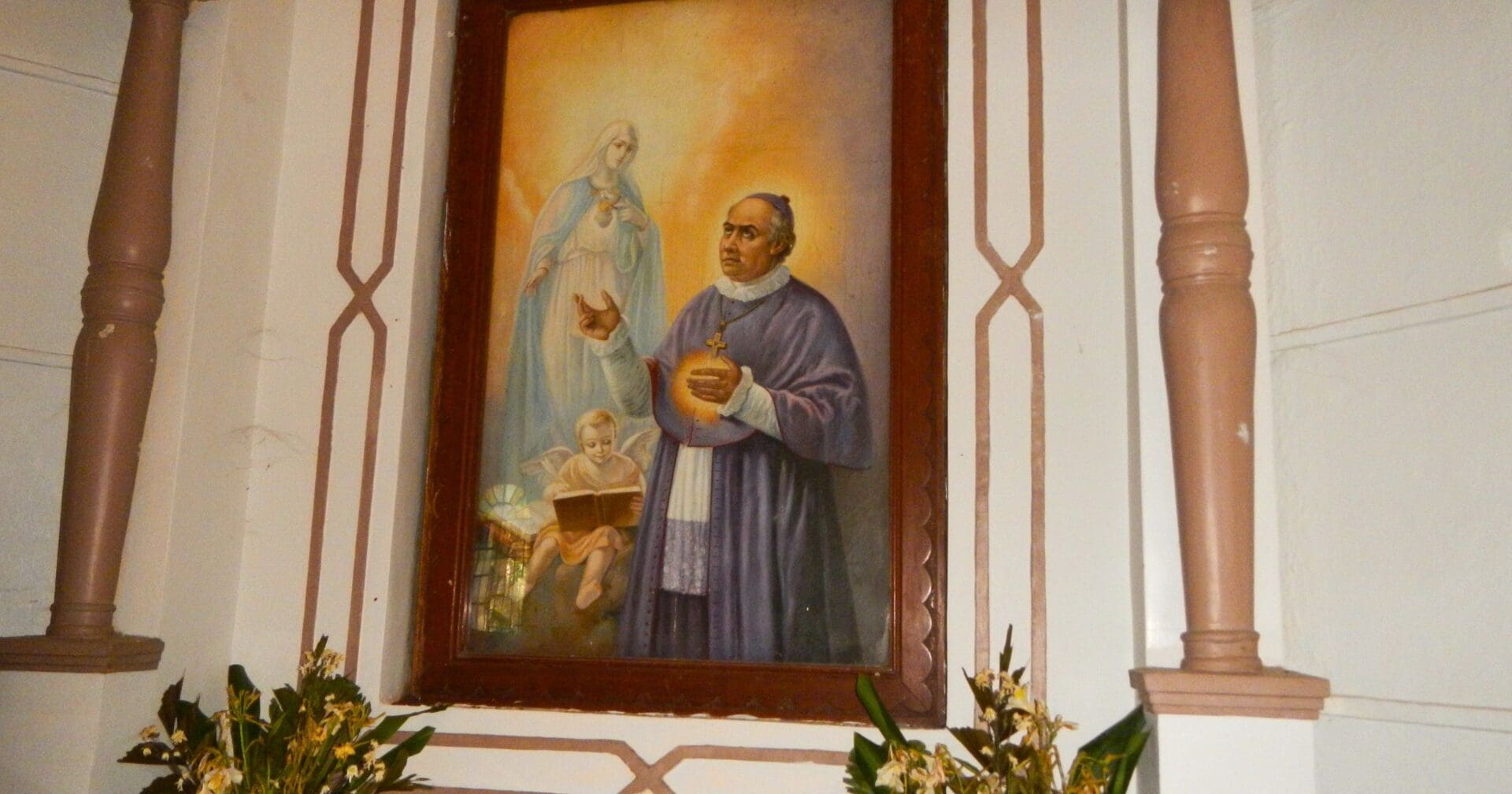
Born in Sallent, Catalonia, on December 23, 1807, Saint Anthony Mary Claret was the fifth of Juan Claret and Josefa Clará’s eleven children. Despite his father’s modest textile factory, Anthony was raised in a devout Christian setting, developing an early and profound understanding of Christ’s desire for humanity’s eternal salvation. He aspired to save sinners from eternal misery, working diligently for their salvation. At eleven, when asked by a bishop about his future ambitions, Anthony promptly declared his desire to become a priest.
Upon reaching working age, Anthony apprenticed as a weaver, later moving to Barcelona at 17 to further his textile studies and work in larger mills. Excelling in his field, he received numerous job offers from major textile firms. However, feeling the void of worldly success, he chose to return home, having been struck by the Gospel’s message: “What does it profit a man to gain the whole world, yet lose his own soul?” This prompted him to study Latin and prepare for seminary, initially aspiring to join the Carthusian Monks. His father, though supportive, hoped for him to become a diocesan priest—a path Anthony eventually chose, enrolling in a seminary in Vic at the age of 21.
A year into his studies, Anthony reconsidered his monastic calling and set out for a nearby monastery. However, a severe storm and recognition of his frail health led him to abandon this pursuit. At 27, he was ordained a priest, initially serving in his hometown. Yet, his missionary zeal soon outgrew the small town, and the anti-Church political climate hindered his work. Seeking broader horizons, he traveled to Rome, offering himself for foreign missions. When this did not pan out, he joined the Jesuits, hoping to fulfill his missionary aspirations. Unfortunately, a mysterious illness cut this journey short, forcing him back to Catalonia.
Back home, Claret began an extensive preaching mission, attracting large audiences and dedicating countless hours to confessions. He devoted all his apostolic work to Mary, feeling himself an apostle in her service. Love, he believed, was the essential virtue for any preacher, comparing its necessity to fire behind a bullet in a musket.
Claret’s popularity soared, earning him the title of “apostolic missionary” from the Pope in 1842. Recognizing the press’s power, he founded a Religious Press in 1847, making God’s message accessible across social strata. Despite his success, increasing political unrest in Spain posed a constant threat. Thus, he accepted an invitation to preach in the Canary Islands, spending 14 months there before returning to Spain to realize his dream of establishing a missionary order.
On July 16, 1849, Claret founded the Missionary Sons of the Immaculate Heart of Mary, also known as the Claretian Fathers and Brothers. Shortly after, he was appointed Archbishop of Santiago de Cuba, forcing him to leave his fledgling community. In Cuba, he dedicated his ministry to Mary and quickly identified the urgent need for human and Christian development, especially among the poor. His initiatives included vocational schools, credit unions, agricultural improvements, and advocating for the oppressed and marginalized. His actions, however, made him a target, and he survived an assassination attempt in Holguín.
In 1857, Claret was summoned back to Spain to serve as Queen Isabella II’s confessor. Despite his distaste for aristocratic life, he accepted out of obedience, ensuring he could continue his missionary work. He played a vital role in selecting dedicated bishops during his eleven-year service, enduring slander and ridicule from the Church’s enemies. The 1868 revolution forced the Queen and Claret into exile, providing him an opportunity to preach in Paris before attending the First Vatican Council in 1869. He strongly defended papal infallibility, which became a Catholic dogma during the Council.
With his health failing, Claret returned to France, where he went into hiding due to an arrest warrant. He spent his final days in the Fontfroide Cistercian Monastery, passing away on October 24, 1870, at 62. His final wish was to have the words “I have loved justice and hated iniquity; therefore I die in exile” inscribed on his tombstone. Beatified in 1934 and canonized in 1950 by Pope Pius XII, his legacy and teachings continue to inspire.
Photo credit: Public Domain via Wikimedia Commons
The post Saint Anthony Mary Claret appeared first on uCatholic.
Daily Reading
Saturday of the Thirty-third Week in Ordinary Time
Reading Rv 11:4-12 I, John, heard a voice from heaven speak to me: Here are my two witnesses: These are the two olive trees and the two lampstands that stand…
Daily Meditation
Living in Love
Click here for daily readings Is there anything better? My fiancé and I have been engaged for about four months and we are thrilled! We’ve both seen the fruits of…




